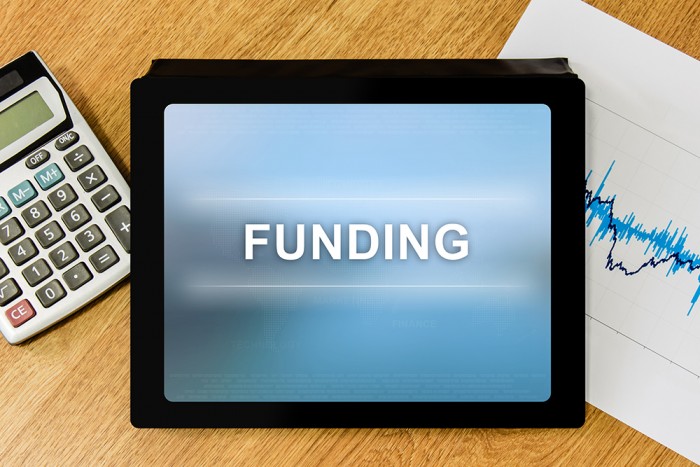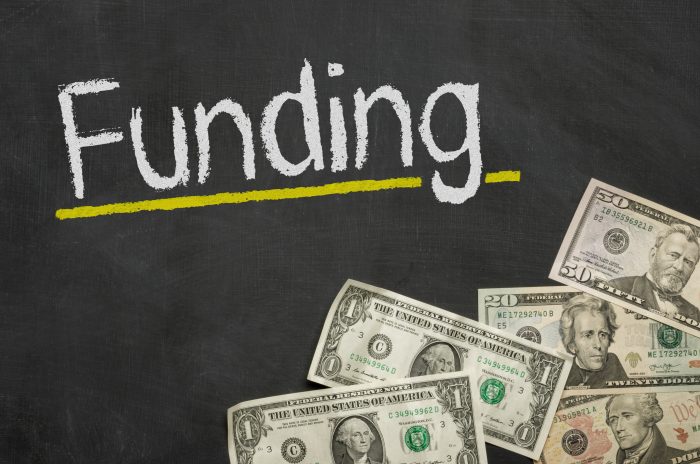Funding
ARPA Funding Reporting Portal Launched
The Department of Human Services (DHS) Office of Long-Term Living (OLTL) has announced the launch of the American Rescue Plan Act of 2021 (ARPA) Funding Reporting portal. The online portal will be available on September 30, 2022, for OLTL providers to submit costs associated with ARPA funding distributed in 2021 in order to comply with DHS reporting requirements.
Background: ARPA Funding Information
In 2021, federal funding from ARPA was allocated by the General Assembly under Act 24 and enacted by Governor Wolf to provide funding to nursing facilities (NF), personal care homes (PCH), and assisted living residences (ALR). These ARPA funds should be used for COVID-19 relief for costs not otherwise reimbursed by federal, state, or other sources of funding.
In addition, ARPA provided a temporary 10 percent increase to the federal medical assistance percentage (FMAP) for certain Medicaid expenditures for home and community-based services (HCBS). The funding must be used to enhance, expand, or strengthen HCBS. OLTL outlined in its plan to the Centers for Medicare & Medicaid Services (CMS) initiatives to strengthen the workforce and assist Adult Day Services (ADS) providers. The OLTL ARPA plan directed funding to Personal Assistance Service (PAS), Community Integration (CI), and Residential Habilitation (Res Hab) providers to assist with recruitment and retention of direct care workers. The plan also directed additional funding to providers to strengthen ADS.
ARPA funding must be used for things such as sign-on bonuses, retention payments, COVID-19 related leave benefits and paid time off, vaccination incentives, and/or the purchase of personal protective equipment and testing supplies. Additionally, ADS providers can use the funding for retrofitting adult daily living centers, expenses to re-open the centers, and expenses to develop alternative models to provide ADS.
Additional detailed information about the distribution of the 2021 ARPA funding can be found on the DHS Long-Term Care Providers web page.
ARPA Funding Reporting Portal
Effective September 30, 2022, providers can access the portal and begin to report ARPA 2021 costs. Providers can access the portal through the Funding Portal Login web page. The first report due date will be November 30, 2022, and should reflect two reporting periods. Providers are required to submit reports in the portal on a bi-annual basis thereafter according to their exhaustion of the funds. Please reference the chart below.
|
Report Period |
Due Dates |
|
07/01/2021 – 12/31/2021 01/01/2022 – 06/30/2022 |
11/30/2022 |
| 07/01/2022 – 12/31/2022 | 2/28/2023 |
| 01/01/2023 – 6/30/2023 | 8/30/2023 |
| 07/01/2023 – 12/31/2023 | 2/28/2024 |
Providers must keep all documentation related to the costs reported in the final cost report for a minimum of five years.
DHS County Funding for Infant Mental Health Training
$49 Million in Education Funds Coming to the Commonwealth
CMS Expands Money Follows the Person Program
OMHSAS/OCDEL to Host County IECMH Funding Webinar Sept. 9
The Office of Mental Health and Substance Abuse Services (OMHSAS), in collaboration with the Office of Child Development and Early Learning (OCDEL), will be hosting a webinar on September 9 from 9:00 am – 11:00 am to support counties in their use of annual Infant and Early Childhood Mental Health (IECMH) funds. This webinar will include an overview of IECMH, organizations that host IECMH-related conferences, summits, and/or trainings that are preapproved for reimbursement, and instruction for counties on how to submit an IECMH funding request that is not preapproved.
See the Program Flyer for additional details.
MEETING REGISTRATION:
Please register for the IECMH Funding Webinar on September 9, 2022, 9:00 am EDT. After registering, you will receive a confirmation email containing information about joining the webinar.
Call-in Number: 415-655-0052
Access Code: 733418631#
For questions regarding the webinar, please contact Amy Kabiru or RCPA Children’s Policy Director Jim Sharp.
Gaudenzia CEO Dale Klatzker Appointed to Behavioral Health Commission for Adult Mental Health

RCPA is pleased to announce that Gaudenzia CEO Dale Klatzker has been appointed to the Behavioral Health Commission for Adult Mental Health.
The commission was created in the recently passed fiscal code as part of Pennsylvania’s fiscal year 2022/23 budget. Language in the law specifically directed the commission to include as a member, among others, “A recognized subject matter expert in the treatment of co-occurring mental health and substance use disorders from a list of recommendations compiled by the Rehabilitation and Community Providers Association with experience in behavioral health matters.” Gov. Wolf selected Klatzker from among a list of RCPA member behavioral health experts provided by the association.
A leader in behavioral health care for more than 35 years, Klatzker was appointed CEO of Gaudenzia, Inc. in March 2019. Gaudenzia operates substance use disorder (SUD) and co-occurring mental health (MH) programs in Pennsylvania, Maryland, Delaware, and Washington, D.C. Established in Philadelphia in 1968, Gaudenzia, Inc. is Pennsylvania’s largest non-profit provider of treatment for SUD and co-occurring disorders.
Before joining Gaudenzia, Klatzker held roles as senior consultant and chief clinical officer for The Margolin Group, as well as senior vice president, Population Health Management, for Care New England. Previous to those roles, he was president and CEO of The Providence Center (TPC) and was at the forefront of establishing programs that integrate primary and behavioral health care through community partnerships and strategic consumer-focused programming. Through his leadership, TPC became a national model for integrated care in community mental health settings.
Klatzker has been both locally and nationally recognized for his leadership and innovative contributions to the field. He has served as board chair of the National Council for Community Behavioral Healthcare, chair of Mental Health Corporations of America, fellow for the Rhode Island Foundation Fellows Program, associate clinical professor at Alpert Medical School at Brown University, adjunct professor of psychology at Johnson and Wales University, and adjunct assistant professor at the Department of Social Sciences and Education at Colby-Sawyer College. He also served on the Rhode Island Healthcare Reform Commission, Community Healthcare Providers Leadership Council, and numerous other commissions and committees. He received his PhD from the Brandeis University Heller School and his MSW from Boston University.
Reporting to the Department of Human Services, the commission is to be comprised of 24 individuals from various state agencies or areas of specialty, as well as legislative appointees. The commission is charged with issuing a report of recommended funding allocations to the following areas. This funding will come from $100 million of federal American Rescue Plan funds.
- Delivery of services by telemedicine;
- Behavioral health rates, network adequacy, and mental health payment parity;
- Workforce development and retention;
- Expansion of certified peer support specialist services and peer-run services;
- Development and provision of crisis services;
- Integration of behavioral health and substance use disorder treatment;
- Cultural competencies when providing behavioral health care;
- Impact of social determinants of health on behavioral health;
- Intersection of behavioral health and the criminal justice system; and
- Integrating care that can deliver timely psychiatric care in a primary care setting.
Open for Public Comment — Additional ARPA Initiatives in ODP
ODP Announcement 22-088 reports that ODP is seeking public comment on the proposed initiatives specific to programs and services for individuals with an intellectual disability and/or autism (ID/A) for which ARPA funds will be used.
ARPA provides a temporary 10% increase to the federal medical assistance percentage (FMAP) for certain Medicaid expenditures for home and community-based services (HCBS). The funding must be used to enhance, expand, or strengthen HCBS beyond what is available under Medicaid programs, including ODP’s waivers.
ODP is proposing additional initiatives in the following areas:
- Data Management Enhancements;
- Targeted Program Recovery; and
- Expansion Supplemental Payments.
Interested persons are invited to submit written comments regarding the proposed ODP ARPA initiatives. Comments should be addressed to: Department of Human Services, Office of Developmental Programs, Division of Provider Assistance and Rate Setting, 4th Floor, 625 Forster Street, Harrisburg, PA 17120.
Comments may also be submitted to the Department via email using the subject header “ODP ARPA Initiatives.” Comments received by 11:59 pm on August 19, 2022, will be reviewed and considered for final implementation.
Capitolwire: Counties Face Uncertainty on State Funding for Mental Health Services
Counties Face Uncertainty on State Funding for Mental Health Services
By Robert Swift
Capitolwire Staff Reporter
HARRISBURG (Aug. 2) — County officials face some uncertainty in running their basic mental health programs upon learning they get flat funding under the new state budget.
Getting a level amount of state aid means counties will have difficulty reducing waiting lists for services which are widespread, hiring to address staff shortages, and expanding services to meet various mental health needs, said Lisa Schaefer, executive director of the County Commissioners Association of Pennsylvania, on Tuesday.
“We are certainly disappointed,” she said. “There is certainly a lot of good increased funding could do.”
CCAP learned this week there is no increase in that line item as analysis continues with the Fiscal Year 2022/23 budget enacted early last month.
CCAP is part of a coalition that lobbied this year to end level state funding for basic county mental health services for the past 11 years. Gov. Tom Wolf proposed a $36.6 million increase to restore much of a decade-old cut in state aid to county-run mental health programs, but that didn’t make the final budget enacted last month.
Instead the budget provides an additional $53 million for assorted mental health-related needs, including the county programs and state-run hospitals.
“Counties can continue to get grants for mental health programs from the Department of Human Services under the Community Mental Health Services Block Grant (CMHSBG),” said DHS spokesman Brandon Cwalina.
“This funding supports counties in their planning and implementation of mobile crisis services, as well as crisis receiving and stabilization services, that meet national standards for crisis intervention services,” he said.
“It can also be used to support service expansion efforts that ensure a full continuum of community crisis intervention services for anyone regardless of insurer or ability to pay…” said Cwalina. “Counties have until 2025 to use the funds available through these CMHSBG grant allocations to continue the building of crisis mental health service infrastructures across the commonwealth.”
And the budget directs $100 million in unspent federal COVID relief funds for general mental health programs and an additional $100 million in COVID funds for school mental health grants.
The one-time funding comes after lawmakers of both parties said this year that more needs to be done to address mental health issues among Pennsylvanians.
Counties could get a share of that, but Schaefer said annual funding is needed to rebuild the counties network of mental health programs.
The $100 million for general mental health programs can’t be spent until a new special state commission meets and makes recommendations for to how to spend it the money and the Legislature passes enabling legislation.
Whether that happens during the remainder of Gov. Tom Wolf’s term or after a new governor takes office next January is uncertain.
The 24-member Behavioral Health Commission for Adult Mental Health is charged with considering funding for the following areas: telemedicine services, mental and behavioral payment parity, workforce development and retention, expansion of peer support services, crisis services, integration of behavioral support and substances abuse disorder treatment, cultural issues in providing behavioral health care, impact of health on behavioral health, intersection of behavioral health and the criminal justice system, and timely delivery of psychiatric care.
The commission composed of state officials and legislative appointees, is supposed to hold its first meeting by September and hold at least two meetings, one with rural care providers and law enforcement and one with urban or suburban providers and law enforcement.
Counties will have a representative on the commission who can advocate for funding, said Schaefer.
“The $100 million in ARPA funding and the grants available through the CMHSBG are a start, but further investment will be necessary to support growing behavioral health care needs,” said Cwalina. “The Wolf administration is encouraged by the General Assembly’s recognition of ongoing need through their establishment of the Behavioral Health Commission for Adult Mental Health, and we hope the recommendations adopted by the commission will be considered for future investments outside of ARPA funds.”
RCPA has been asked to be a part of the Behavioral Health Commission process and will continue its collective efforts with the Mental Health Safety Net Coalition to create sustainable pathways for all mental health funding platforms in Pennsylvania.
If you have any questions, please contact your RCPA Policy Director.















